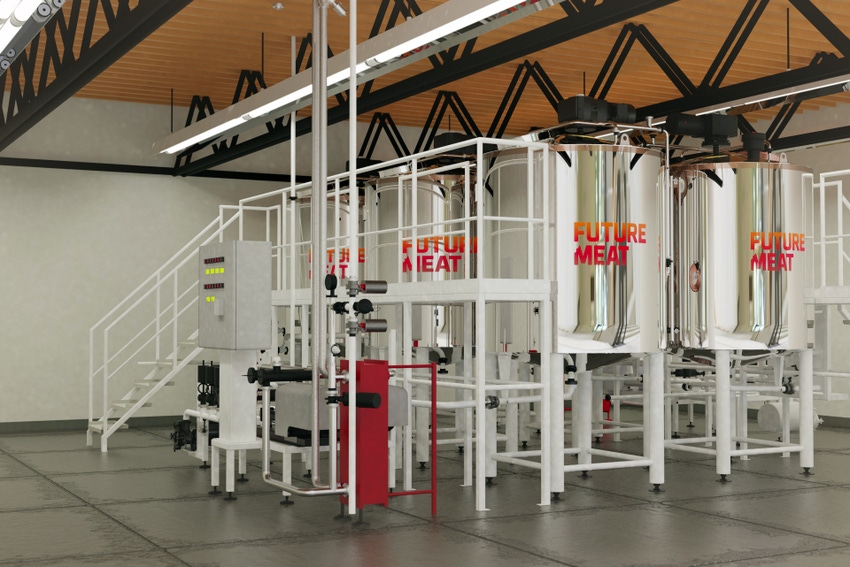Company to begin working with industrial partners to bring product to market.

Future Meat Technologies, a biotechnology company developing a distributive platform for the cost-efficient, genetically modified organism-free production of meat directly from animal cells, announced that it has closed a $14 million Series A funding round led by S2G Ventures. The funding will be used to expand research and development efforts and build the world's first cultured meat pilot production facility, estimated to begin operations in 2020, south of Tel Aviv, Israel, the company said.
Future Meat said it has a highly sustainable manufacturing model that results in 99% less land use and 80% fewer greenhouse gas emissions than traditional meat production.
"With this investment, we're thrilled to bring cultured meat from the lab to the factory floor and begin working with our industrial partners to bring our product to market," Future Meat chief executive officer Rom Kshuk said. "We're not only developing a global network of investors and advisors with expertise across the meat and ingredient supply chains but also providing the company with sufficient runway to achieve commercially viable production costs within the next two years."
Future Meat's process utilizes the rapid growth of connective tissue cells called fibroblasts to reach high densities before turning the cells to cultured muscle and healthy fats. The company aims to introduce hybrid products – combining plant proteins for texture and cultured fats that create the distinct aroma and flavor of meat. With current small-scale production costs of $150/lb. of chicken and $200/lb. of beef, Future Meat plans to release its hybrid products at a competitive cost level from its pilot production facility by 2021 and launch a second line of 100% cultured meat products at a cost of less than $10/lb. by 2022.
"I personally want to make sure my children and grandchildren will be able to enjoy the same meat dishes that I grew up with. The worldwide demand for protein is growing exponentially, and the only way to meet this demand is by fundamentally reinventing animal agriculture,” said professor Yaakov Nahmias, the company's founder and chief scientist. “Future Meat Technologies created a cost-effective solution for cultured meat manufacturing that is scalable and sustainable by design.”
This Series A funding marks the second-largest investment round in the cultured meat sector to date, indicating significant interest from the financial community in the entire meat market amid growing demand for sustainability in the face of deforestation and climate change, the company said.
"Future Meat Technologies' innovative approach offers a differentiated and exciting path forward in the development of cultured meat," S2G Ventures managing director Matthew Walker said. "The Future Meat team has developed a technology platform and roadmap that offers the cleanest and most efficient means of cell-based meat production -- both in terms of capital expenditure and cost per pound -- that we've seen to date."
Investors in the company include Tyson Ventures, the venture capital arm of Tyson Foods; the Neto Group, one of the largest food conglomerates in Israel; S2G Ventures, a Chicago, Ill.-based venture capital fund; Bits x Bites, China’s first food technology venture capital fund, and Agrinnovation, an Israeli investment fund founded by Yissum, the Technology Transfer Company of The Hebrew University, and HB Ventures.
According to a recently published report by MarketsandMarkets, the culture meat market size is estimated to be valued at $214 million by 2025 and $593 million by 2032, recording a compound annual growth rate of 15.7% from 2025 to 2032 in the normal scenario. Rising meat consumption and increasing demand for nutritional meat are some of the key factors driving this industry growth, the report noted.
About the Author(s)
You May Also Like




.png?width=300&auto=webp&quality=80&disable=upscale)
